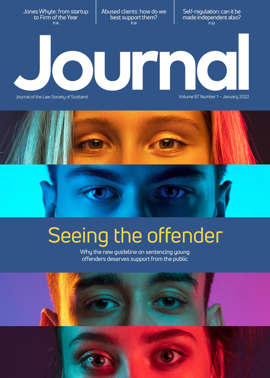COVID vaccine: in the child's interests?

On 12 September 2021, the COVID-19 vaccination programme was extended to children aged between 12 and 15.
As anticipated, it wasn’t long before the issue of vaccinating a child against COVID-19 came before the courts. We now have what is believed to be the first case of its kind in England: C (Looked After Child) (Covid-19 Vaccination) [2021] EWHC 2993 (Fam).
C, a 12 year old boy, the subject of a local authority care order, was living in a local authority placement. His mother and father retained parental rights and responsibilities. Due to the care order, the local authority also held parental rights and responsibilities.
C wished to have the COVID-19 and also the winter flu vaccines. The local authority was supportive, as was C’s father. His mother however was opposed to C receiving either vaccine. The local authority applied for a declaration that it could override the mother’s wishes.
Material before the court
The mother had a strong but generalised concern about the vaccines. She did not consider the COVID-19 vaccine to be tried and tested. She considered the flu vaccine to be unsafe. She accepted that there were no medical issues specific to C that raised concerns about the vaccines, though she said C might have an unknown condition that would put him at risk. She sought more time to look into the safety and efficacy of the flu vaccine, and she did not wish C to receive the COVID-19 vaccine until there was what she would regard as “compelling evidence that it is safe and effective”. She did not accept that decisions made about the national vaccination programmes were based on sound evidence.
In addition, the mother sought clarification as to who would be responsible for any adverse reaction C might suffer following vaccination, stating that she would hold the court responsible.
She produced items which the court described as “anti-COVID-19 vaccination propaganda”. The court found the material devoid of evidence and rational argument, lacking citation of any peer reviewed research that would raise any significant concern about the safety and efficacy of either vaccine.
The authority relied on advice published by the UK Health Security Agency (“UKHSA”), citing the view of the Chief Medical Officers that one dose of COVID-19 vaccine would provide good protection for young people against severe illness and hospitalisation, and help reduce the risk of COVID-19 spreading within schools and the need for time off school, thereby keeping young people emotionally well and happier – an important consideration. Similar guidance was referred to in respect of the winter flu vaccination.
C, whose views were taken by a guardian appointed, expressed that he was frustrated by his mother’s position. He had weighed up the evidence about the vaccines and reflected on his own circumstances. In particular, he had concerns about the risk of infecting a disabled child in his current placement. He considered his mother’s views not “smart”. He was clear that he wished to receive both vaccines.
Decision
Absent any specific evidence-based concerns about C receiving these vaccines, or any new peer-reviewed research calling into question their efficacy and/or safety, the court did not consider it necessary or appropriate to delve into an assessment of the vaccines themselves, or seek expert evidence. It was satisfied that the national programmes were based on a wealth of scrutinised evidence and, as the vaccines had been approved and recommended by UKHSA, that they were in the best interests of children at the specified ages.
The court acknowledged that vaccines are not free from risk of harm to a child; but also that not giving a vaccine gives rise to a risk of harm. Before a national programme of vaccination is rolled out, such risks require to be carefully considered and balanced against the benefits from vaccination.
The case was simplified to some extent as C himself wished to have the vaccines. The court was satisfied that the local authority, with a care order in place, could override the mother’s wishes in this case and proceed to vaccination.
Commentary
While this is the first case relating to COVID-19 vaccination, there have been a number of similar disputes before the English courts surrounding the administration of a vaccine to a child.
F v F [2013] EWHC 2683 (Fam) saw the High Court order that two children, aged 11 and 15, be administered the MMR vaccine, despite their mother’s and their own opposition. Their father was in favour of vaccination. While the court was bound to take the children’s views into account, it found they lacked a mature and appropriate understanding of the issues. The court acknowledged its statutory duty to treat their welfare as its paramount consideration; in the circumstances the children’s views could not override that duty. The children were therefore ordered to receive the vaccination.
We are yet to see a case come before a Scottish court regarding COVID-19 vaccination. However, this English case law supports the approach we would expect a Scottish court to take: to follow the UK Government guidance in favour of vaccination in the absence of any specific contraindication relating to the child concerned.







